Page Not Found
Page not found. Your pixels are in another canvas.
A list of all the posts and pages found on the site. For you robots out there is an XML version available for digesting as well.
Page not found. Your pixels are in another canvas.
About me
This is a page not in th emain menu
These are some of the student evaluations from the classes that I had formerly taught (Teaching of Record).
Compared to the previous semester (Summer 2024), the student response rate more than doubled (increased from 15.2% to 38.6%). I am humbled to receive so much great feedback from some of my students (some comments can be found in the document below).
A PDF version of the students’ evaluation results can be found below the picture.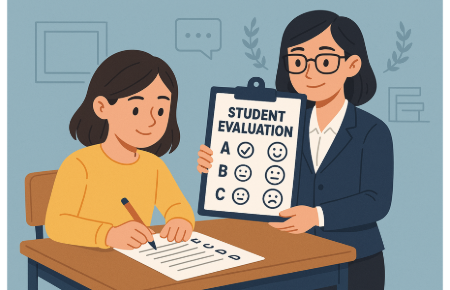
Download PDF
This is an evaluation letter by a faculty member (at SGPP) for a class that I taught in Spring 2025. A summary of this letter can be found below:
Yongfeng Tang delivered a well-structured and engaging guest lecture on “Conducting Surveys” in POL 397B, effectively introducing students to key elements of survey design, including sampling, response bias, and data collection methods. Using examples from sources like Pew Research and ANES, along with visuals and materials from his own research in Taiwan, he made complex concepts accessible and relevant. His presentation was clear, visually effective, and grounded in real-world applications, while also addressing methodological challenges like social desirability bias and nonresponse. Suggestions for enhancement included more applied examples, low-stakes exercises, and deeper discussion of survey mode effects and advanced techniques. Overall, Yongfeng demonstrated strong pedagogical skills, content fluency, and professionalism, making him a valuable instructor in social science research methods.
A PDF version of the evaluation letter can be found below the picture. 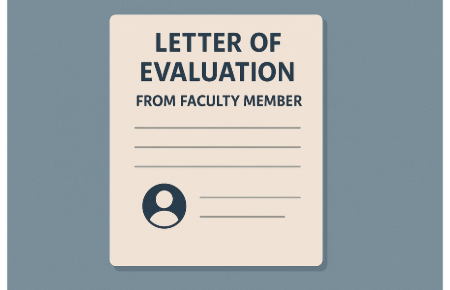
Download PDF
This is a peer evaluation letter for a class that I taught in Spring 2025, written by one of my colleagues from my IA697P course.
A summary of the letter can be found below:
“On April 15, 2025, Yongfeng Tang delivered a guest lecture for an undergraduate course in Comparative Politics on the topic of political parties and party systems. The lesson was designed to promote active, student-centered learning through the use of real-world examples, clear explanations of key concepts, and interactive polling tools such as Slido. Tang also facilitated a collaborative group activity that encouraged students to apply course material in a structured and time-sensitive manner. The session was well-received, with observational feedback noting Tang’s clear communication, inclusive teaching practices, and ability to make complex political science topics accessible and engaging. Recommendations for future iterations—including the use of collaborative digital platforms—will inform the continued development of Tang’s instructional approach.
A PDF version of the evaluation letter can be found below the picture. 
Download PDF
Published in Journal of Chinese Political Science, 2021
Download here
Undergraduate course The University of Arizona, SGPP
Teaching an online class (“International Relations”) at the undergraduate level at the University of Arizona during the Summer and Fall of 2024.
To promote reflective and responsive teaching, I will administer a mid-term feedback survey to students in my courses during the Summer and Fall semesters of 2025. The purpose of this survey is to assess how well students are engaging with the material, evaluate the clarity of my instruction, and identify areas for improvement. The insights gathered will help me adapt my teaching strategies in real time and demonstrate my commitment to student-centered learning and continuous improvement. A PDF version of the survey can be found below the picture. 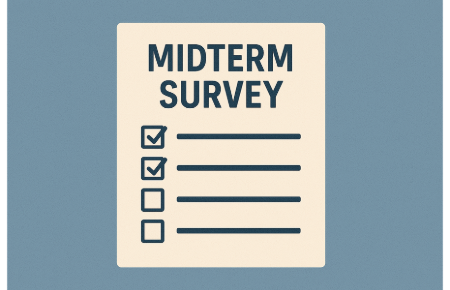
Download PDF
I believe that education should be accessible to all and that true learning extends beyond grades and test scores. My goal is to help students discover their personal motivation for learning, whether driven by career aspirations, intellectual curiosity, or civic engagement. In my teaching, I emphasize critical thinking, the application of theoretical concepts to real-world cases, and the cultivation of lifelong learning skills. I am committed to creating an inclusive, supportive, and student-centered environment that respects diverse learning needs and empowers students to find their voice, build confidence, and reach their full potential both inside and outside the classroom. A PDF version can be found below the picture. 
Download PDF
This is a sample syllabus that I can potentially teach in the future at the undergraduate level. The course title is < Comparative Politics in the Age of Globalization>. This course offers a foundational exploration of democracy and autocracy—the two dominant regime types shaping global politics today. Students will examine how political systems emerge, why some countries become democratic while others remain authoritarian, and what factors contribute to their stability or decline. Through comparative analysis, the course introduces students to key concepts and methods used by political scientists to study regime types, institutions, political behavior, and governance. Special attention is given to understanding the causes and consequences of democratic transitions, authoritarian resilience, and hybrid regimes. Students will engage in lectures, discussions, and in-class activities that encourage critical thinking and comparative reasoning. A central feature of the course is a scaffolded, semester-long research project in which students select a country case (outside the U.S.) and investigate a major question related to democracy or autocracy. By the end of the course, students will have developed the tools to analyze political systems, assess evidence, and form well-supported arguments about the dynamics of regime change and persistence.
A PDF version can be found below the picture. 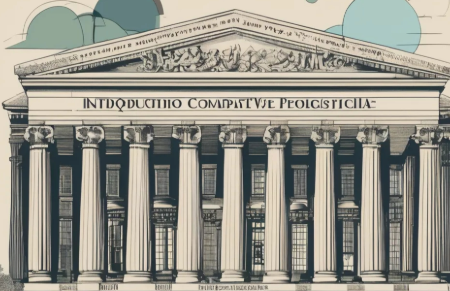
Download PDF
This is a sample lesson plan that I had taught in Spring 2025. This sample lesson plan, designed for a guest lecture in a comparative politics course, explores the role of political parties and party systems through a combination of lecture, real-world examples, interactive quizzes, and a collaborative group activity. The session emphasizes student engagement, active learning, and the application of theory to practice. By integrating technology and encouraging peer discussion, the lesson reflects my commitment to student-centered, evidence-based teaching, and continuous improvement in instructional delivery. A PDF version of the lesson plan can be found below the picture. 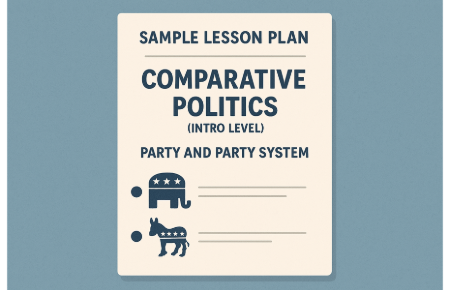
Download PDF